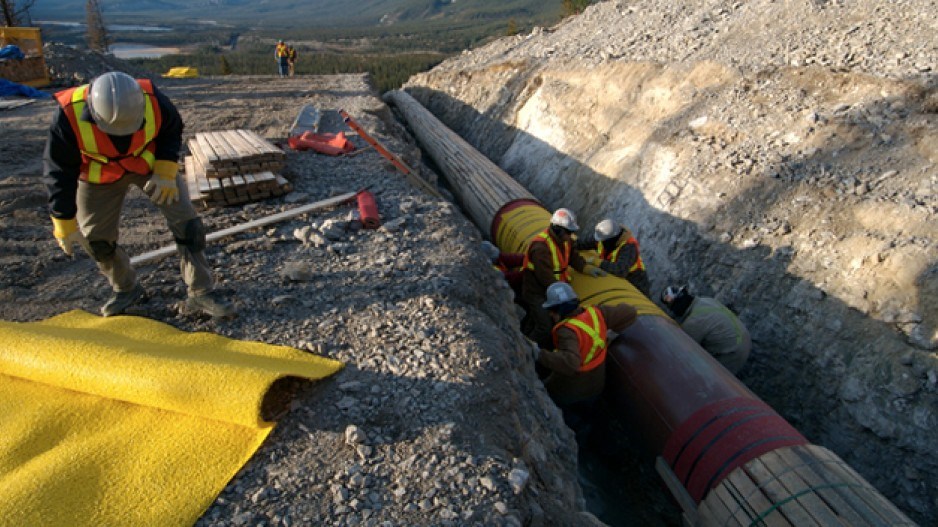By the time Enbridge Inc. (TSX:ENB) manages to tick off the 100-plus conditions it must meet before it can start work on the Northern Gateway pipeline, Kinder Morgan Inc. (NYSE:KMI) may have the green light for its Trans Mountain pipeline twinning project.
Not that that's a problem in terms of competition. There is enough oil in Alberta – and enough customers wanting it – to support the construction of the four pipelines that are proposed for Canada, said Enbridge president Al Monaco.
“If you look at the landscape and the supply profile out of Western Canada, it's pretty clear that we are going to need all of the pipelines that are being proposed,” Monaco said last week.
The problem that both companies could face is that building its pipelines at the same time, while competing with gas pipelines for a new liquefied natural gas (LNG) industry, could put serious inflationary pressures on all the projects, largely due to labour costs and constraints.
That type of pressure has added billions to the capital costs of LNG plants in Australia, according to a recent Oxford Institute for Energy Studies report.
“The next question is just how much inflation are we going to see in Canada if all this goes,” said Reynold Tetzlaff, PwC's national energy leader.
“That's the risk that some of the global investors are looking at. They've seen what happens in Australia as far as inflation, and they'd rather avoid that here.”
Last week, Ottawa gave Enbridge the green light to build the Northern Gateway pipeline. But there are 209 federal conditions attached. About half of them must be met before Enbridge even makes a final investment decision, Monaco said.
He said his company will spend 12 to 15 months trying to meet those 100-plus conditions and expects the pipeline would not be in service until 2018 or later.
In addition to the 209 federal conditions, the B.C. government has five of its own, and B.C. Environment Minister Mary Polak made it clear her government will not co-operate if Enbridge does not meet them.
“If they are not meeting the five conditions, then they won't be able to show in a permit application that they don't have adverse environmental effects, therefore those permits wouldn't be granted,” she said.
Brad Hayes, president of the energy consulting firm Petrel Robertson Consulting Ltd., said there is a real danger the project could founder.
“The question is: how many delays are they willing to accept before they finally just say, ‘Well, we're not going to make this investment'? I think it's a real risk,” he said.
Hayes said the standards for building a new pipeline in Canada are so high, he wonders if any greenfield project stands a chance of going ahead.
“The standard to prove that there's [no] dangers is just so much higher now, at some point you've got to wonder, is it realistic that anything new is ever going to happen?”
Although Enbridge was first out of the gate with the approvals it needs from the National Energy Board (NEB), Environment Canada and federal cabinet, Kinder Morgan has an inside track.
For one thing, the review process it is going through is much shorter and more streamlined than the one Enbridge had to face. Under the new regulations, the NEB must make a decision within 15 months and cabinet must make a decision three months after that.
More importantly, though, Kinder Morgan has an existing right-of-way, and 25% of the twinning it needs to do (through a section of Alberta that includes Jasper National Park) is already done.
If all goes according to plan, the company expects the $5.4 billion twinning project to be completed by 2017 – about a year ahead of Enbridge's plans to complete Northern Gateway.




